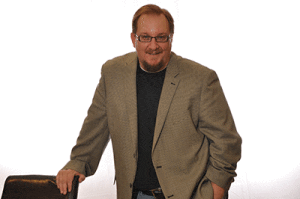AHA members are involved in all fields of history, with wide-ranging specializations, interests, and areas of employment. To recognize our talented and eclectic membership, AHA Todayfeatures a regular AHA Member Spotlight series.
Ethan Schmidt is assistant professor of American history at Delta State University. He currently lives in Cleveland, Mississippi, and has been a member of the AHA since 2006.
 Alma mater/s: PhD, University of Kansas; BA, MA, Emporia State University.
Alma mater/s: PhD, University of Kansas; BA, MA, Emporia State University.
Fields of interest: Atlantic history, ethnohistory, colonial British North America, social history
When did you first develop an interest in history?
I grew up in a family that valued history. My parents were both involved in historic preservation. My father is a collector of Civil War and other 19th-century Kansas memorabilia. Both he and my mother have always exhibited considerable interest in 19th-century America, so I came of age with parents and extended family members who were as often as not engaged in some kind of discussion in which history played either a primary or tangential role. When I went to college at Emporia State University, I was originally a political science major (I wanted to be an attorney). I took US history to 1877 from Christopher Phillips (now with the University of Cincinnati) and loved it and him. I made history my minor, but continued to take every class with Chris that I could. Finally, one day I was leaving class my junior year I saw a flyer which listed the requirements to major in history and I realized I was only about six hours short. I was questioning my desire to go to law school at that point as well, so I went straight to the History Department office and declared a dual major in political science and history. Not long after that, Ronald McCoy (now at Oklahoma State University) introduced me to ethnohistory and I was hooked!
What projects are you working on currently?
My first monograph, The Divided Dominion: Social Conflict and Indian Hatred in Early Virginia, is currently in production with the University of Colorado Press and should be published sometime in 2014. My second project, a synthesis of the Native American experience in the American Revolution tentatively titled The Greatest Blow That Could Have Been Dealt Us: Native Americans and the American Revolution, is under contract with ABC-CLIO.
Have your interests changed since graduate school? If so, how?
I am not sure that my interests have changed that much since I left graduate school, but certainly since I started my PhD in 2003 they have evolved considerably. I was originally more interested in the relationships between indigenous people and European colonists in the northern colonies. However, as my work attests my interests shifted to the South during my time working with Paul Kelton at Kansas. Additionally, I considered myself a colonial ethnohistorian. However, since being exposed to Atlantic history during my PhD I tend to consider myself an Atlantic historian more than anything else.
Is there an article, book, movie, blog, etc. that you could recommend to fellow AHA members?
Probably the three books that influenced my thinking as a historian more than any are Edmund Morgan’s American Slavery, American Freedom: The Ordeal of Colonial Virginia; E.P. Thompson’s The Making of the English Working Class; and Richard White’s The Middle Ground: Indians, Empires, and Republics in the Great Lakes Region, 1650–1815.
What do you value most about the history profession?
I value the fact that inquiry for the sake of inquiry is honored in the profession. We never accept the conventional wisdom or current paradigm as an acceptable answer. To be a historian (and a practitioner in any other humanities field for that matter) is to grapple with the very core of what it is that makes us human. Our triumphs, our tragedies, our flaws, and our strengths are all laid bare by the scholarly study of history and without this kind of inquiry there is little hope for mankind I think. Also, I love a crowd, I love to talk/read/write about the past, and I loved college so much I never wanted to leave it. Hence, there was really no other path for me!
Why did you join the AHA?
Originally, like most everyone else I joined because I went on the market in 2007. However, the AHA has been invaluable to me both in that endeavor (twice) and as a source for networking with other historians as well as a place I go to as a central location for the latest news of the profession.
Do you have a favorite AHA annual meeting anecdote you would like to share?
The first annual meeting I attended was in Atlanta in 2007. I was in my fourth year of my PhD was on the market for the first time. As I waited outside the room to go into my first interview I reached down and brushed the side of my suit pants only to discover they had a hole in them. For the rest of that day, I strategically kept my left hand over that particular seam. When it came time for on-campus interviews, I bought a new suit!! I landed the job by the way.
Other than history, what are you passionate about?
Family, teaching, Kansas Jayhawk basketball, college football, baseball, theatre, good music, good food, good drink, and good friends!
This post first appeared on AHA Today.
This work is licensed under a Creative Commons Attribution-NonCommercial-NoDerivatives 4.0 International License. Attribution must provide author name, article title, Perspectives on History, date of publication, and a link to this page. This license applies only to the article, not to text or images used here by permission.